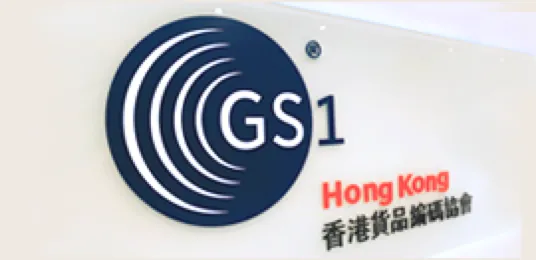Over 80% of Chinese mainland GBA consumers strongly prefer socially responsible brands, KPMG China, GS1 HK and HSBC survey finds

Retailers facing growing consumer demand for ESG and data protection
14 November 2022, Chinese Hong Kong – More consumers in Chinese Hong Kong and the nine Chinese Mainland Greater Bay Area (GBA) cities expect retailers to adopt ESG values that align with their own and want to be rewarded for making sustainable purchasing decisions, according to a joint survey by KPMG China, GS1 Hong Kong and HSBC.
The sixth edition of the study on omnichannel retail trends, titled “Retail Recharged: Engaging Consumers with Technology, Purpose and Trust”, surveyed 2,065 consumers and 342 senior retail industry executives in Chinese Hong Kong and nine Chinese Mainland GBA cities, to explore how businesses and consumers in the GBA are embracing the trends and technologies in a retail ecosystem that has changed dramatically by the global Covid-19 pandemic.
In particular, this year’s study finds that consumers are expecting greater commitment from brands on sustainability and social responsibility. Over 80% of consumers in Chinese Mainland GBA cities said they like to use brands that share the same social values as they do, while 24% wanted to be given the option to offset the carbon impact of their purchases. While consumers’ regard for sustainability is positive overall, among Chinese Mainland GBA and Chinese Hong Kong respondents, 81% and 69% respectively said they would be interested in being rewarded for making more sustainable purchasing decisions.
Daniel Hui, Partner and Head of Consumer and Retail, Hong Kong, KPMG China, says: “As consumers are increasingly aware of retailers’ behaviour, those who demonstrate the right behaviour while ensuring their purpose is aligned with customers’ values and expectations will hold a strong position. When consumers aspire to buy products from socially responsible brands and be rewarded for their conscious purchasing decisions, brands must invest in sustainability. Additionally, as consumers increasingly place importance on physical retail alongside an accelerating demand for digital retail, brands must realise the value of in-person connections with customers and the touch-and-feel shopping experience.”
He explained that retailers must seamlessly integrate their online and offline presence in order to cater to consumer preferences, while they would benefit from promoting sustainable purchases at no additional cost to the customer, even going further to offer incentives for such purchases.
To succeed in today’s competitive and changing environment, organisations need to be agile, customer-focused, and future-ready. The study finds that consumers are continuing to migrate from physical channels to online even as the pandemic begins to fade. Consumers who prefer contactless shopping have increased to 80% of those in those GBA cities in the Chinese Mainland and 61% of those in Chinese Hong Kong. This sentiment is most popular in Chinese Mainland GBA cities among those aged 55 plus (85%) and in Chinese Hong Kong among Gen Z (73%).
Importantly, consumers want to be able to navigate a brand’s online and offline channels depending on their preferences, with less people agreeing that ‘they can live without physical retail stores’ compared to last year’s findings. While the study underlines the importance of retailers adopting an omnichannel approach to selling their goods, there has been a moderate decline in the proportion of consumers who now believe they can live without the need for physical retail stores. That figure has fallen from 24% in Chinse Hong Kong and 23% in Chinese Mainland GBA cities to just 18% across all cities surveyed.
Anna Lin, Chief Executive, GS1 Hong Kong, says: "Creating seamless digital and physical experience to engage consumers is the way that retailers going forward. Mobile-first strategies emerge as the key to offer simple yet interactive O+O experience to today’s digital-savvy consumer. Business can consider common technology like mobile scanning of a product QR code which links to diverse information, to build consumer trust and boost purchase."
Consumers’ trust in retailers’ promotional information is important in driving top-line sales, customers also care about how their data is being protected. The survey showed data security (31%) along with the challenge of seamlessly integrating data across multiple channels and platforms (29%) are leading concerns for retailers. Recruiting talent with the right skillsets in digital and data analytics to manage the collection and interpretation of customer information (28%) is another major challenge.
One of the reasons for growing awareness on data protection is a surge in use of digital payments. Around three in four GBA consumers surveyed (76%) said they were comfortable using digital payments – up from 67% in 2020. In Chinese Hong Kong, 68% said they have a higher comfort level in checking out digitally (up from 65%). In fact, the online check-out and payment process during the online purchase journey is considered the most satisfactory feature in both markets, satisfying 71% of Chinese Mainland GBA consumers and 57% in Chinese Hong Kong.
Yvonne Yiu, Managing Director, Regional Co-Head of Global Payments Solutions, Asia Pacific, HSBC, says: " To build long-term relationships with consumers – in particular Gen Z and Millennials, retailers should focus on delivering seamless checkout and payment experience. That’s why the application of APIs, data analytics and other technologies is playing a key role in shaping the future of retail sectors. At HSBC, we continue to scale up our collaboration with ecosystem players to innovate in the digital payment space, where the rate of adoption by businesses continues to accelerate. In the first half of 2022, HSBC Business Collect service has seen a 75% growth in transaction volume in Hong Kong and mainland China."
Consumers – particularly the generation of digital natives – are looking to brands to use AI and other technology to improve the customer experience by enabling greater connection with brands. An overwhelming proportion of consumers are confident and comfortable using technology, especially in Chinese Mainland GBA cities, where 88% consider themselves mobile-savvy and 81% tech-savvy, three and four percentage points more respectively than in our 2021 survey. However, only 22% of retailers surveyed said they were willing to invest in technology to create a seamless purchasing and transactional process – down from 30% in the 2021 survey.
Interestingly, consumers across the GBA are becoming increasingly frugal. They are less willing to pay a premium for added-value services when shopping online, but they expect greater convenience, especially in delivery. In Chinese Hong Kong, roughly one in four of the consumers surveyed said they were not prepared to pay a premium for any service at all, compared with 9% of those from Chinese Mainland GBA cities. Of Chinese Mainland GBA respondents, 20% would pay extra for enhanced order tracking and 16% for weekend delivery, in both cases, four percentage points down on the 2021 survey.
– End –
About KPMG China
KPMG China has offices located in 31 cities with over 15,000 partners and staff, in Beijing, Changchun, Changsha, Chengdu, Chongqing, Dalian, Dongguan, Foshan, Fuzhou, Guangzhou, Haikou, Hangzhou, Hefei, Jinan, Nanjing, Nantong, Ningbo, Qingdao, Shanghai, Shenyang, Shenzhen, Suzhou, Taiyuan, Tianjin, Wuhan, Wuxi, Xiamen, Xi’an, Zhengzhou, Hong Kong SAR and Macau SAR. Working collaboratively across all these offices, KPMG China can deploy experienced professionals efficiently, wherever our client is located.
KPMG is a global organization of independent professional services firms providing Audit, Tax and Advisory services. KPMG is the brand under which the member firms of KPMG International Limited (“KPMG International”) operate and provide professional services. “KPMG” is used to refer to individual member firms within the KPMG organization or to one or more member firms collectively.
KPMG firms operate in 144 countries and territories with more than 236,000 partners and employees working in member firms around the world. Each KPMG firm is a legally distinct and separate entity and describes itself as such. Each KPMG member firm is responsible for its own obligations and liabilities.
KPMG International Limited is a private English company limited by guarantee. KPMG International Limited and its related entities do not provide services to clients.
In 1992, KPMG became the first international accounting network to be granted a joint venture licence in the Chinese Mainland. KPMG was also the first among the Big Four in the Chinese Mainland to convert from a joint venture to a special general partnership, as of 1 August 2012. Additionally, the Hong Kong firm can trace its origins to 1945. This early commitment to this market, together with an unwavering focus on quality, has been the foundation for accumulated industry experience, and is reflected in KPMG’s appointment for multidisciplinary services (including audit, tax and advisory) by some of China’s most prestigious companies.
About GS1 Hong Kong
Founded by the Hong Kong General Chamber of Commerce in 1989, GS1 Hong Kong (GS1 HK) is the local chapter of GS1®, which supports companies’ digitalisation to enhance supply chain transparency and efficiency, ensure product authenticity, and facilitate online and offline commerce with global supply chain standards (product identification key and barcode) and a full spectrum of standard-based platforms, solutions and services.
Currently, GS1 HK has around 8,000 corporate members covering close to 20 industries including retail consumer goods, food and food services, healthcare, apparel, logistics as well as information and technology. By engaging with communities of trading partners, industry organisations, government, and technology providers, GS1 HK is fostering a collaborative ecosystem with the vision of “Smarter Business, Better Life”.
Headquartered in Brussels, Belgium, GS1® is a not-for-profit, standards organisation that has 115 national chapters serving 150 economies globally.
For more information, please visit www.gs1hk.org.
About The Hongkong and Shanghai Banking Corporation Limited
The Hongkong and Shanghai Banking Corporation Limited is the founding member of the HSBC Group. HSBC serves customers worldwide from offices in 63 countries and territories in its geographical regions: Europe, Asia, North America, Latin America, and Middle East and North Africa. With assets of US$2,992bn at 30 September 2022, HSBC is one of the largest banking and financial services organisations in the world.
Media enquiries:
KPMG China
Dyna Yu
Direct: +852 3927 5798
Email: dyna.yu@kpmg.com
Gemma Ho
Direct: +852 3927 3171
Email: gemma.ho@kpmg.com
GS1 Hong Kong
Corinna Fung
Head of Corporate Marketing
Direct: +852 2863 9787
Email: corinnafung@gs1hk.org
Will Ip
Corporate Communication Manager
Direct: +852 2863 9763
Email: willip@gs1hk.org
HSBC
Agnes Tin
Senior Communications Manager
Direct: +852 2822 4958
Email: agnestin@hsbc.com.hk
Winna Chan
Communication Manager
Direct: +852 3945 3131
Email: winnawcchan@hsbc.com.hk

(852) 2863-9763
media@gs1hk.org

